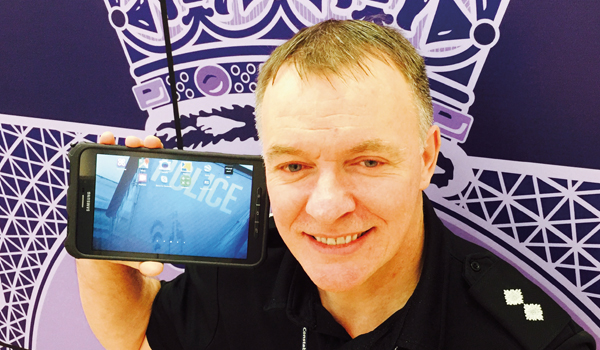Greater use of body-worn video called for in response to domestic abuse situations
Northern Ireland Policing Boards Human Rights and Professional Standards Committee has urged the Police Service of Northern Ireland (PSNI) to ensure that officers routinely use body-worn digital recording systems, often referred to as headcams, in gathering evidence at domestic abuse incidents.

Northern Ireland Policing Boards Human Rights and Professional Standards Committee has urged the Police Service of Northern Ireland (PSNI) to ensure that officers routinely use body-worn digital recording systems, often referred to as headcams, in gathering evidence at domestic abuse incidents.
Committee chair Conall McDevitt MLA explained: The law allows for a domestic abuse prosecution to proceed even if the victim withdraws their complaint or is not prepared to cooperate with the police.
In such situations the evidence gathered by police during first attendance at the incident can be critical and the use of headcams could greatly assist in the prosecution of abusers.
Mr McDevitt said the use of this equipment for domestic incidents was recommended in a board report on the police response to domestic abuse.
While the PSNI has advised us that this technology is used in some districts across a range of operational settings, including domestic abuse situations, members would like to see it being used as a matter of routine across all areas in domestic abuse cases, said Mr McDevitt.
The judiciary has indicated that those responsible for domestic abuse will be given tougher sentences even if the victim withdraws their complaint. We know how difficult it can be for victims to give evidence against perpetrators in court, so if there are ways of police helping prosecutions succeed then these must be actioned.
The PSNI already uses body-worn video during operations such as animal cruelty, planned searches, road traffic collisions, paramilitary-related incidents, youth-related incidents and domestic abuse situations.
Body-worn cameras are being increasingly used by other forces across the UK to aid with prosecution in domestic violence cases.
Sussex Police used the cameras earlier this year during its annual Operation Cranberry, with patrols dedicated to dealing with reports of domestic abuse, particularly during football tournaments such as Junes UEFA Euro 2012 championships, when people are drinking more.
The force has already used footage secured with the devices to prosecute in a domestic violence case where the victim was too afraid to testify against her partner.
Normally, domestic abuse cases rely on the victims word against their abuser. If police arrive at the scene of reported abuse with body-worn cameras then the chances of gaining quality evidence are greatly increased.
Police in Winsor, Canada, for example, found that when cameras were introduced, the conviction rate in domestic disputes went from 50 per cent to 95 per cent. This was because the video evidence produced a higher rate of guilty pleas.
Grampian Police is the first force to make body-worn video devices available to all its frontline officers.
Each of Grampians 32 police stations have been issued with VideoBadge systems from Edinburgh-based Edesix for use by officers out on patrol.
The force says the presence of the video cameras, based on an ID card holder design, helps public order and community assurance, while incident recordings lead to swifter justice with increased guilty pleas in court.
Superintendent Nick Topping, who is leading the project, said: The cameras can provide potentially crucial evidence through the clear and accurate digital video that they record and offer an extra layer of protection for officers.
Most significantly, the cameras have helped to bring about earlier guilty pleas which means officers are able to spend less time in court and more time out and about in communities, making a real difference.
Richie McBride, managing director of Edesix, said: There are a number of UK police forces using VideoBadge as part of their operations, but Grampian Police is the first to implement the system force-wide.



